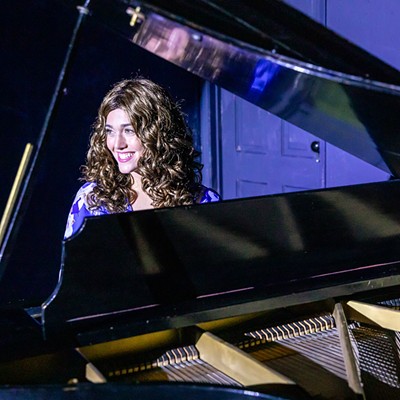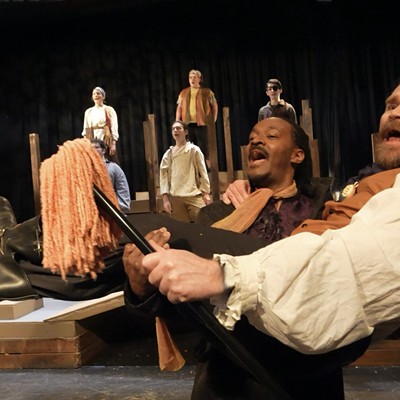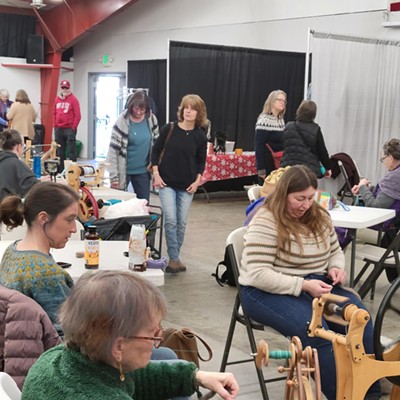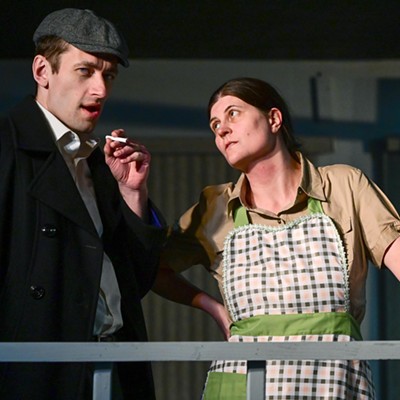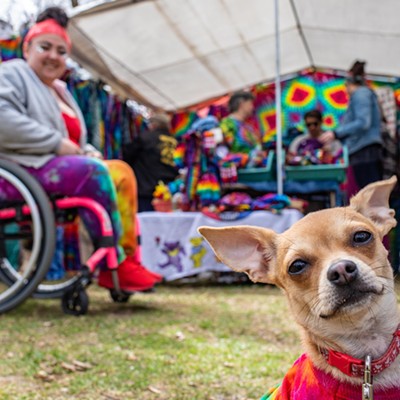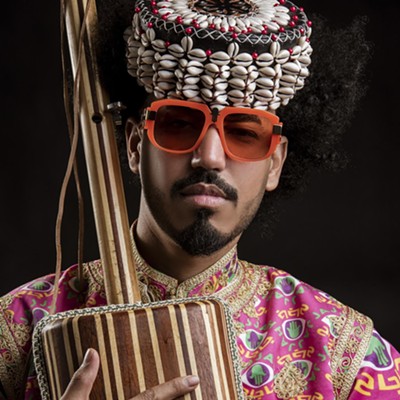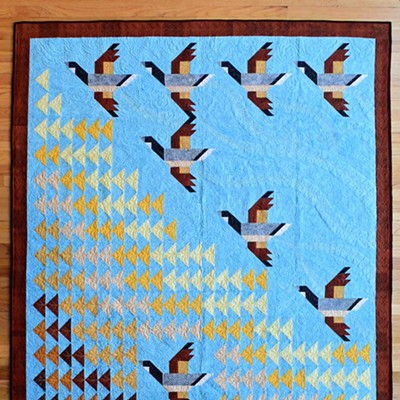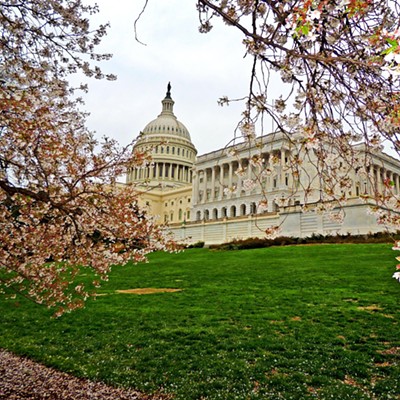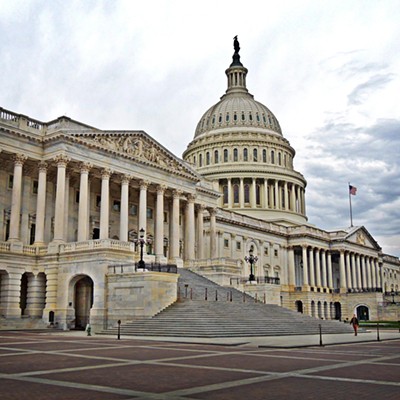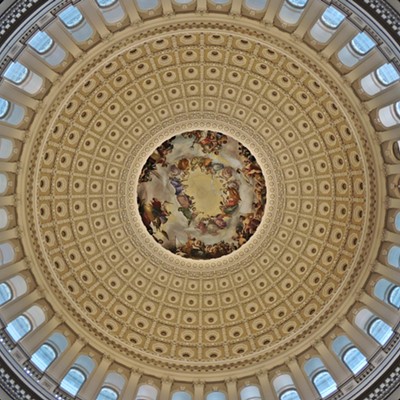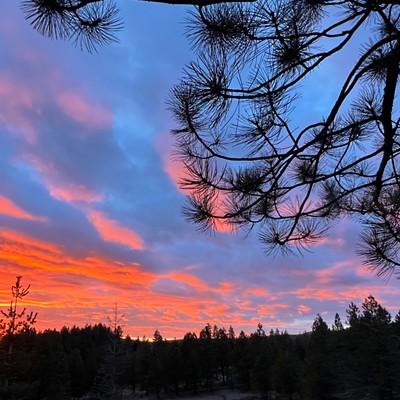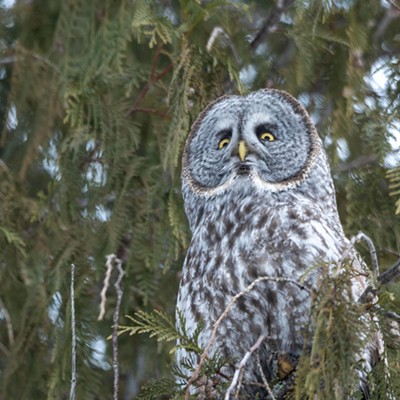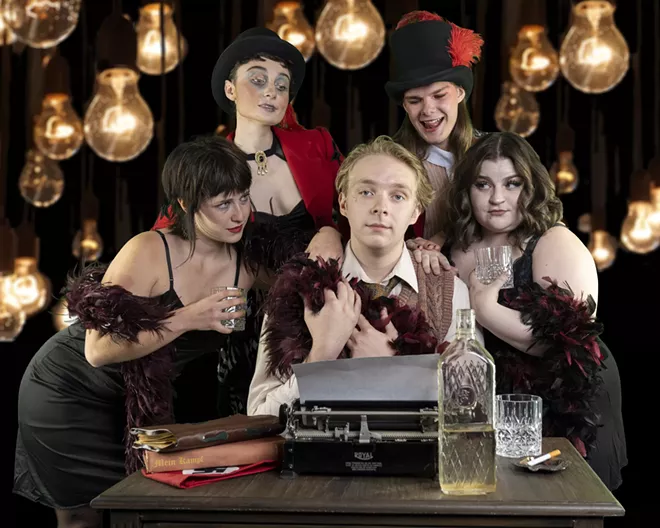
“Cabaret” teems with all the song and dance you’d expect from a musical, but don’t mistake it for light fare or escapism.
The show, which opens Friday, Oct. 28, and runs through Nov. 6 at the University of Idaho, explores themes and issues director Craig A. Miller said have proved timeless — and are especially of-the-moment today. We chatted with Miller, an assistant professor of acting and directing, via email about the story’s relevance and how it resonates in 2022.
Inland 360: Please share a bit about the particular relevance of this production at this moment in our society. Did its themes affect the choice to do the show now?
Craig A. Miller: Why are we doing this show, now? Because it’s about us. Here. Now. Today!
Although set at the beginning of 1930 in Berlin, Germany, the show's content and concerns could almost seem as if ripped from today’s headlines. The issues it addresses in the lives of the characters are things that we are dealing with right now — racism, abortion, homophobia, lack of equity, lack of inclusiveness, fear of "otherness," oppression of identity, denying basic freedoms, violence against women and suppressing human expression. These are the themes that percolate within “Cabaret.”
Yes, it is set in a different time, but make no mistake, it is about the lives we are living right now – it has everything to do with our students’ lives here at UI and the lives of the members of our local, regional, national and global communities as well.
360: What would you want audiences to know about this production?
Miller: For audiences, I believe that “Cabaret” checks all the boxes of what we desire in an excellent and timeless musical: It makes us laugh, makes us cry, makes us think, provides an excellent story and exciting and lavish music and dancing, and gives us something to talk about and maybe even hope for when we leave the theater; it is a full cathartic experience.
What amazes me is that in the 50-plus years since its 1966 Broadway debut, “Cabaret” has only been distilled; made leaner and meaner through edits and refining by the creators from the 1966 original to the 1972 movie starring Liza Minelli, to a 1988 revival and then to the 1998 Broadway revival version, which was directed by Sam Mendes and starred Alan Cumming as the emcee. The latter is the version we are using for the UI production, so everything in our production has been there since day one, just incredibly magnified so it continues to have new meaning. That’s the show’s strange power: It responds to whatever is going on in the world. Over the decades, certain scenes and moments and lines jump out and others recede, depending on what is going on in the world. It is very fluid and responsive material that cannot help but send the audience out into the world, drawing connections and conclusions between a time passed by – to today – revealing just how little we have changed the news cycle of history; “Cabaret” is a continuously cautionary tale.
360: This is a collaborative production. Who came together to make this show happen?
Miller: This is an extraordinary moment for the University of Idaho, as it marks the first time in over a decade that the Theatre Arts Department, Lionel Hampton School of Music and the dance program — Department of Movement Sciences — have converged to collaborate on a full-scale musical theater production. What is so very exciting and impactful for our campus about this experience is that it has brought together faculty, staff, Master of Fine Arts students, Bachelor of Fine Arts, Bachelor of Science and Bachelor of Arts students, alumni, guest artists and Moscow community members from all three disciplines – and beyond – as the creative artistic village to make “Cabaret” happen.
360: So, obviously music and dance play important roles in this show, alongside — or together with — the heavy themes you’ve discussed?
Miller: While the musical has important and serious thematic issues at its core, it is likewise celebrated for its titillating and at times erotic musical and dance numbers featured in the fictionally famed Kit Kat Klub.
Modeled after many of the decadent establishments thriving in Berlin at the end of the Weimar Era of Berlin, the Kit Kat Klub is a place that embodies for us the personal indulgences that were taking place against the backdrop of the rise of the Nazi regime in pre-World War II Germany, and the dangers and atrocities that awaited humanity in the coming years.
For details, tickets and thoughts on this show by professor Sarah Alice Campbell, visit uidaho.edu/class/theatre/productions-and-events/cabaret.
If You Go
What: “Cabaret”
When: 7:30 p.m. Oct. 28-29 and Nov. 4-5; 2 p.m. Oct. 30 and Nov. 6.
Where: Hartung Theater, 625 Stadium Drive, Moscow, on the University of Idaho campus.
Tickets: Free for University of Idaho students; $5 for children 16 and younger; $15 for seniors and military; $22 for UI faculty and staff; and $25 for adults. Credit card payments only at uitickets.com or the Hartung Theater an hour before the show, while tickets last.
Note: The play includes mature content, including references to fascism, antisemitism and abortion. Doors open an hour before showtime with adult beverages available.

